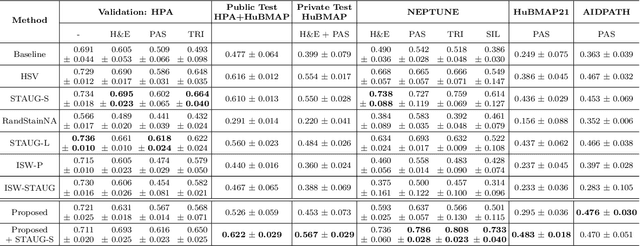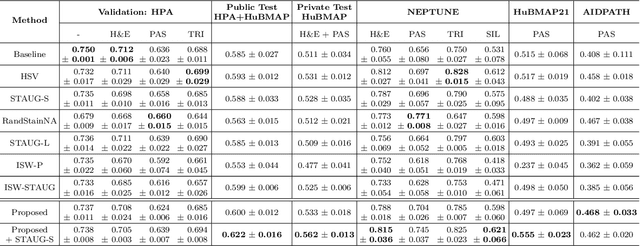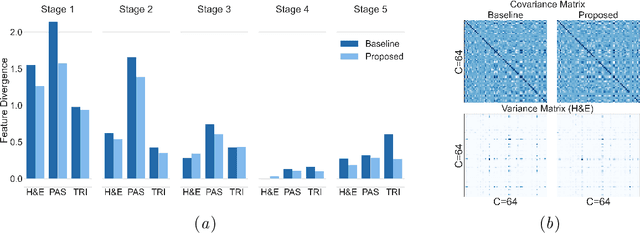Mustaqeem Khan
Improving Stain Invariance of CNNs for Segmentation by Fusing Channel Attention and Domain-Adversarial Training
Apr 22, 2023



Abstract:Variability in staining protocols, such as different slide preparation techniques, chemicals, and scanner configurations, can result in a diverse set of whole slide images (WSIs). This distribution shift can negatively impact the performance of deep learning models on unseen samples, presenting a significant challenge for developing new computational pathology applications. In this study, we propose a method for improving the generalizability of convolutional neural networks (CNNs) to stain changes in a single-source setting for semantic segmentation. Recent studies indicate that style features mainly exist as covariances in earlier network layers. We design a channel attention mechanism based on these findings that detects stain-specific features and modify the previously proposed stain-invariant training scheme. We reweigh the outputs of earlier layers and pass them to the stain-adversarial training branch. We evaluate our method on multi-center, multi-stain datasets and demonstrate its effectiveness through interpretability analysis. Our approach achieves substantial improvements over baselines and competitive performance compared to other methods, as measured by various evaluation metrics. We also show that combining our method with stain augmentation leads to mutually beneficial results and outperforms other techniques. Overall, our study makes significant contributions to the field of computational pathology.
 Add to Chrome
Add to Chrome Add to Firefox
Add to Firefox Add to Edge
Add to Edge